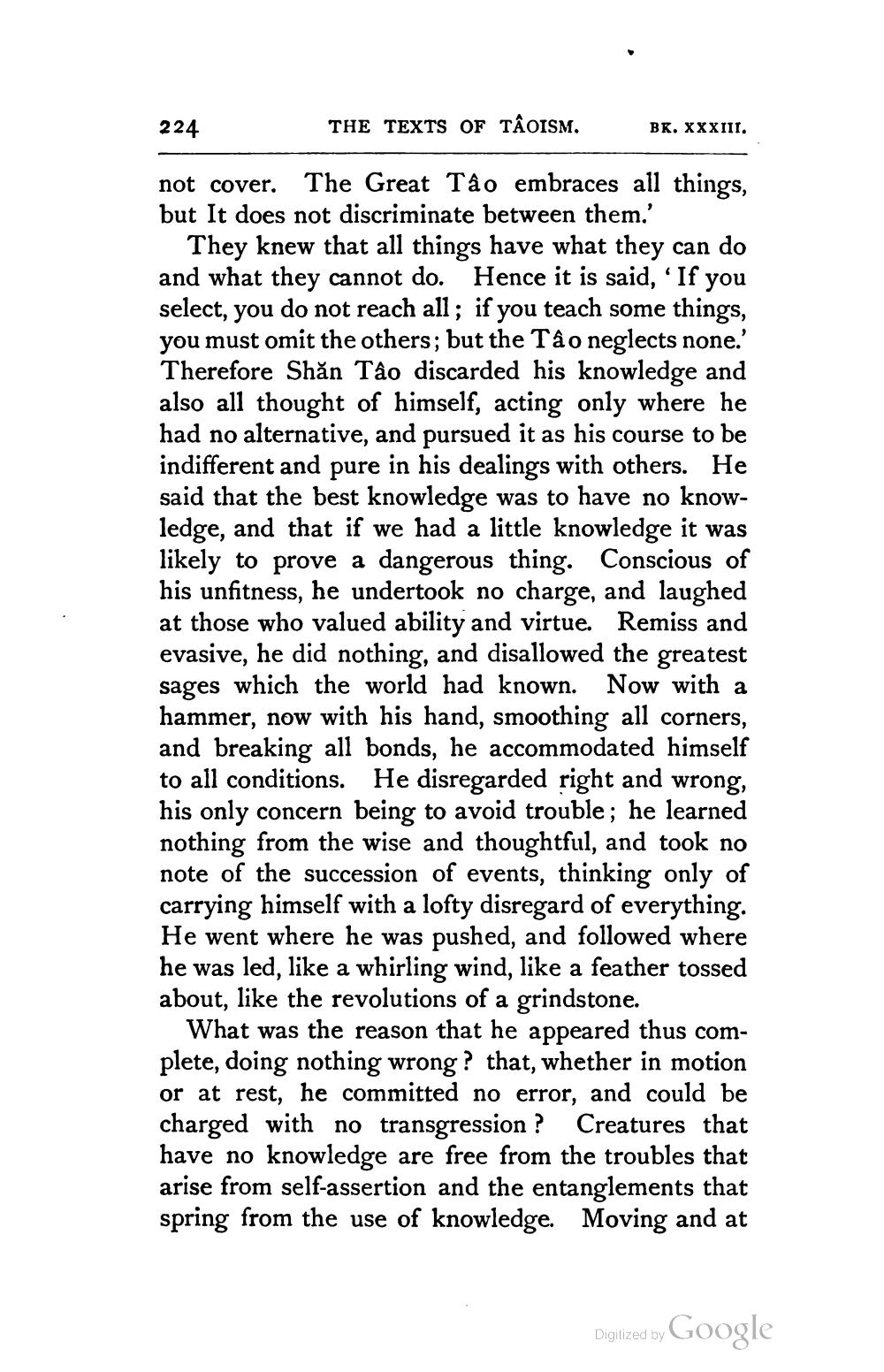________________
224
THE TEXTS OF TÂOISM.
BK. XXXII.
not cover. The Great Tâo embraces all things, but It does not discriminate between them.'
They knew that all things have what they can do and what they cannot do. Hence it is said, 'If you select, you do not reach all; if you teach some things, you must omit the others; but the Tâo neglects none.' Therefore Shăn Tâo discarded his knowledge and also all thought of himself, acting only where he had no alternative, and pursued it as his course to be indifferent and pure in his dealings with others. He said that the best knowledge was to have no knowledge, and that if we had a little knowledge it was likely to prove a dangerous thing. Conscious of his unfitness, he undertook no charge, and laughed at those who valued ability and virtue. Remiss and evasive, he did nothing, and disallowed the greatest sages which the world had known. Now with a hammer, now with his hand, smoothing all corners, and breaking all bonds, he accommodated himself to all conditions. He disregarded right and wrong, his only concern being to avoid trouble; he learned nothing from the wise and thoughtful, and took no note of the succession of events, thinking only of carrying himself with a lofty disregard of everything. He went where he was pushed, and followed where he was led, like a whirling wind, like a feather tossed about, like the revolutions of a grindstone.
What was the reason that he appeared thus complete, doing nothing wrong? that, whether in motion or at rest, he committed no error, and could be charged with no transgression ? Creatures that have no knowledge are free from the troubles that arise from self-assertion and the entanglements that spring from the use of knowledge. Moving and at
Diguized by Google




